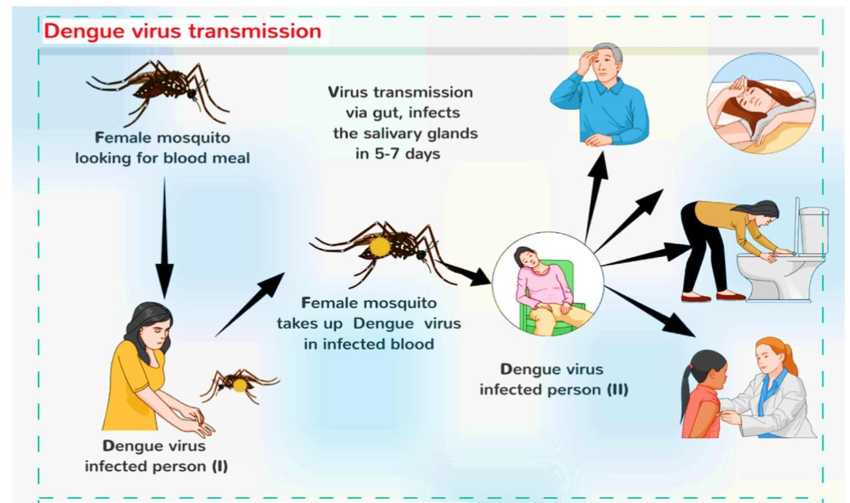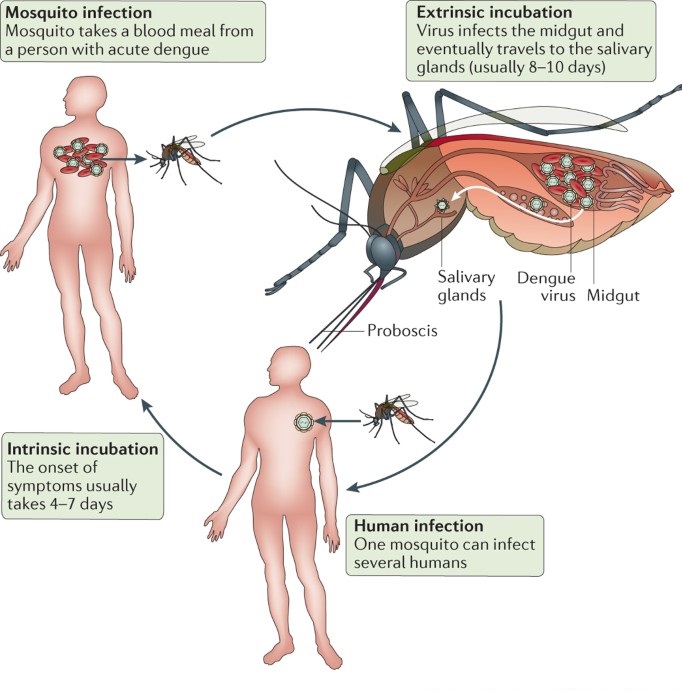Dengue fever is a viral infection caused by the bite of Aedes aegypti and Aedes albopictus mosquitoes. These mosquitoes are mostly active during morning and evening. Millions of people around the world are affected by dengue every year, especially in regions with hot and humid climates.
Dengue is also called “breakbone fever” because it causes severe pain in the bones and joints. According to WHO, dengue fever has become a major challenge for global health. The disease spreads mostly in urban and semi-urban areas where sanitation and water management are not proper.
Timely diagnosis and treatment of this disease is very important because in severe cases it can be fatal. In this blog post we will go into detail about the symptoms, causes, diagnosis, treatment and prevention of dengue.

What is Dengue Fever?
Dengue fever is a viral infection caused by the bite of the Aedes aegypti mosquito. There are four main serotypes of the dengue virus – DENV-1, DENV-2, DENV-3, and DENV-4. A person can be infected with more than one type.
Symptoms of Dengue
Symptoms of dengue usually appear 4-10 days after infection. Some common symptoms are.
- Tez fever
- Severe headache
- Joint and muscle pain
- Nausea and vomiting
- Skin rashes
- Fatigue
In severe cases, the following symptoms may occur
- Stomach pain
- Continuous vomiting
- Bleeding gums
- Nasal bleeding
- Throat ache and confusion

Severe Dengue Fever
In some cases, dengue can become severe, which is called Dengue Hemorrhagic Fever (DHF) or Dengue Shock Syndrome (DSS). In this, the level of platelets starts decreasing, which can cause bleeding and organ failure. If symptoms of severe dengue occur, immediate medical emergency is needed.
Diagnosis of Dengue
To diagnose dengue fever, doctors recommend some tests such as:
- NS1 Antigen Test: It is done to detect the initial infection.
- Dengue IgM and IgG Antibody Test: These tests detect antibodies against the virus.
- Complete Blood Count (CBC): To monitor platelets count and White Blood Cells (WBC) levels.
Treatment of Dengue
There is no specific antiviral treatment for dengue yet. Treatment is based on symptomatic relief:
- Proper hydration
- Pain relievers such as paracetamol
- Hospitalization if needed
- Regular platelets count monitoring
- Oxygen and IV fluids may be needed
How to prevent dengue?
To prevent dengue you have to avoid mosquitoes. Here are some effective prevention tips:
Mosquito Repellents: Apply mosquito repellent on the body.
Full-Sleeved Clothes: Wear clothes that cover the skin.
Stagnant Water: Do not let water stagnate as it can become mosquito breeding sites.
Mosquito Nets: Use mosquito nets at night.
Window Screens: Install screens on the windows and doors of the house.
Dengue Fever and Immunity
After having dengue once, immunity develops, but only for that specific serotype. If infection with another serotype occurs, the risk of getting severe dengue increases. That is why prevention is most important.
Government Initiatives
The Indian government runs many campaigns for dengue prevention and control such as:
Swachh Bharat Abhiyan: Promoting cleanliness and sanitation.
Fogging Campaigns: Mosquito fogging in infected areas.
Health Awareness Programs: Making people aware about the symptoms and prevention of dengue.
Conclusion
Dengue fever is a serious disease, but it can be controlled with proper prevention and timely treatment. If you see symptoms of dengue, contact a doctor immediately.
Cleanliness and caution are the best ways to prevent dengue
